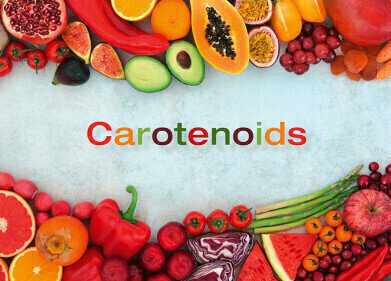HPLC, UHPLC
Can Moringa Leaf Curtail SARS-CoV-2 Growth? - Chromatography Explores
Oct 12 2020
According to the World Health Organization, in July 2020 over 16.5 million people were infected by the novel Severe Acute Respiratory Syndrome Coronavirus-2 (SARS-CoV-2). SARS-CoV-2 are viruses that belong to the family Coronaviridae along with viruses such as the virus that causes the common cold. Researchers all over the globe are investigating both the virus and the disease it causes Coronavirus disease 2019 – COVID-19.
There is currently no cure or vaccine for either the virus or the disease it causes. Researchers are searching for new drugs and experimenting with existing drugs to find a substance that can slow down or halt the rising surge of the pandemic that is caused by SARS-CoV-2 and COVID-19. Researchers in Sacred Heart College, Kerala in India have investigated the effect of phytocompounds from M. oleiera leaves on SARS-CoV-2 proteins. So, can drumstick leaves help fight COVID-19? Chromatography helps to explore.
Corona, a deadly halo of thorns
Coronaviruses come in four genera, alpha, beta, gamma, and delta. They are a group of RNA viruses that affect both mammals and birds. They cause respiratory tract infections from mild infections like the common cold to deadly viruses like SARS, MERS, and COVID-19. The name corona virus is derived from the Latin corona which means crown and refers to the appearance of the virus under an electron microscope where a fringe of thorns or surface projections are visible.
Coronaviruses were first discovered in chickens in the 1920s, with the first human reported coronavirus discovered in the 1960s in the UK and USA. These were coronaviruses that caused common colds in lab volunteers. The viruses were inactivated using ether which suggested that the viruses had a lipid envelope. Subsequent research has confirmed a lipid bilayer makes up the viral envelope.
Drumstick leaves affect the virus
Moringa oleifera is known as the drumstick tree. It is a tropical plant that is widely distributed across India and is used locally to cure over 300 ailments. It is also reported to have inhibitory actions against several viruses. The researchers in India extracted and analysed 19 phytochemicals from M. oleifera leaves using liquid chromatography-mass spectrometry (LC-MS). Advice on optimising a liquid chromatography system can be found in the article, Troubleshooting Retention Time Changes in (U)HPLC – a Systematic Approach.
The researchers used computer modelling to see which of the phytochemicals identified from the drumstick plant might inhibit the SARS-CoV-2 virus. They found that several of the phytochemicals showed a high binding affinity with the virus and could act as virus inhibitors. The compound with the highest activity was apigenin-7-O-rutinoside and the team also found that several of the phytochemicals had antioxidant properties which would ameliorate the post-COVID secondary infection.
Digital Edition
Chromatography Today - Buyers' Guide 2022
October 2023
In This Edition Modern & Practical Applications - Accelerating ADC Development with Mass Spectrometry - Implementing High-Resolution Ion Mobility into Peptide Mapping Workflows Chromatogr...
View all digital editions
Events
ACS National Meeting - Fall 2024
Aug 18 2024 Denver, CO, USA
Sep 04 2024 Chiba, Tokyo, Japan
Sep 04 2024 University of Warwick, Coventry, UK
Sep 10 2024 Rockville, MD, USA
Plastics Recycling World Expo Europe
Sep 11 2024 Brussels, Belgium














